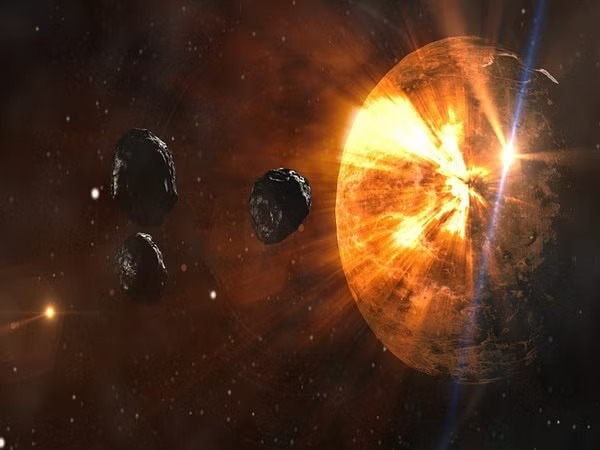Asteroid findings from specks of space dust could save the planet
New research into the durability and age of an ancient asteroid made of rocky rubble and dust, revealed significant findings that could contribute to potentially saving the planet if one ever hurtled toward Earth. Curtin University-led research into the durability and age of an ancient asteroid made of rocky rubble and dust, revealed significant findings that could contribute to potentially saving the planet if one ever hurtled toward Earth. The international team studied three tiny dust particles collected from the surface of ancient 500-metre-long rubble pile asteroid, Itokawa, returned to Earth by the Japanese Space Agency’s Hayabusa 1 probe. The study’s results showed asteroid Itokawa, which is 2 million kilometres from Earth and around the size of Sydney Harbour Bridge, was hard to destroy and resistant to collision. Lead author Professor Fred Jourdan, Director of the Western Australian Argon Isotope Facility, part of the John de Laeter Centre and the School of Earth and Planetary Sciences at Curtin, said the team also found Itokawa is almost as old as the solar system itself. “The huge impact that destroyed Itokawa’s monolithic parent asteroid and formed Itokawa happened at least 4.2 billion years ago. Such an astonishingly long survival time for an asteroid the size of Itokawa is attributed to the shock-absorbent nature of rubble pile material. The Curtin-led team used two complementary techniques to analyse the three dust particles. The first one is called Electron Backscattered Diffraction and can measure if a rock has been shocked by any meteor impact. The second method – argon-argon dating – is used to date asteroid impacts.

